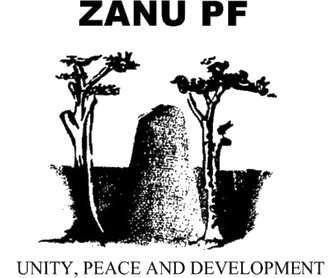
BY HARRIET CHIKANDIWA FINANCE minister Mthuli Ncube has ruled out paying farmers in United States dollars for maize deliveries, but said there were exceptions for those growing export-oriented crops
There are wider calls for dollarisation as the local currency keeps tumbling, but the government has stuck to its guns and ruled out dollarisation.
In an address to Parliament on Wednesday, Ncube said there had been no change in policy, and farmers would be paid in Zimbabwe dollars.
“We are not there yet. We are not ready for that, we have our own domestic currency and we want to set all these agriculture sector prices in domestic currency and also to promote the use of our own currency,” Ncube said.
“However, there are farmers who are receiving payments in US dollars because they are producing crops which are export-oriented such as tobacco, cotton — even cotton is in part US dollar, that is understandable because those crops earn foreign currency but not for crops which do not earn foreign currency.
“We are not there yet in terms of pricing these in foreign currency, but we will look at other measures to support the farmer and we will be creative.”
Ncube said there were plans to deploy extra resources to fund winter wheat production as part of measures to arrest rocketing bread prices. He said an estimated 75 000 farmers would benefit from the programme that targets to produce 350 000 metric tonnes of wheat.
Grain Millers Association of Zimbabwe chairperson Tafadzwa Musarara last week warned Zimbabwe faces bread shortages following a move by the Ukraine army to suspend loading shipping vessels to South East Asia, Middle East and Africa following the Russia-Ukraine war.
- Chamisa under fire over US$120K donation
- Mavhunga puts DeMbare into Chibuku quarterfinals
- Pension funds bet on Cabora Bassa oilfields
- Councils defy govt fire tender directive
Keep Reading
The war has pushed up prices of wheat and maize, in a major demonstration of the disruptive effects of the conflict. The war has also triggered a wave of fuel price hikes across the world, Zimbabwe included.
“Furthermore, government is prioritising the domestication of value chains. In response to bread prices, government, through the winter wheat programmes, is supporting wheat farmers, targeting 75 000 hectares expected to produce 350 000 metric tonnes. This will significantly reduce reliance on wheat imports,” Ncube said.
“In an effort to cushion the general public and businesses against increases in the price of fuel, for example, the government reduced the strategic reserve levy on domestic fuel price from US$12,7 cents to current levels of US$8,7 cents/litre beginning January 2022 through SI 31 of 2022. Government is looking into additional policy measures to address the situation.”
- Follow Harriet on Twitter@harrietchikand1










